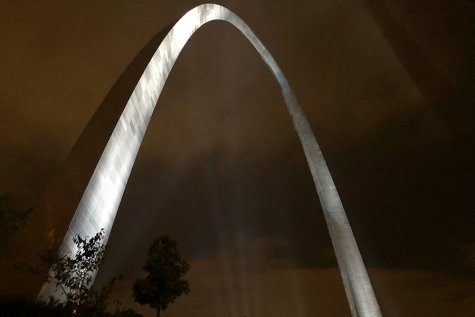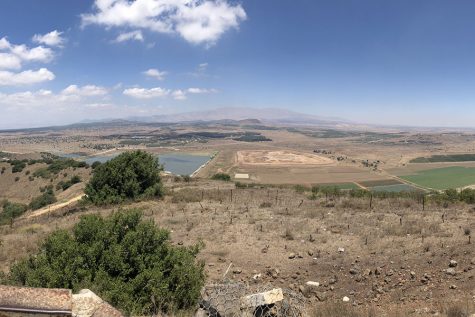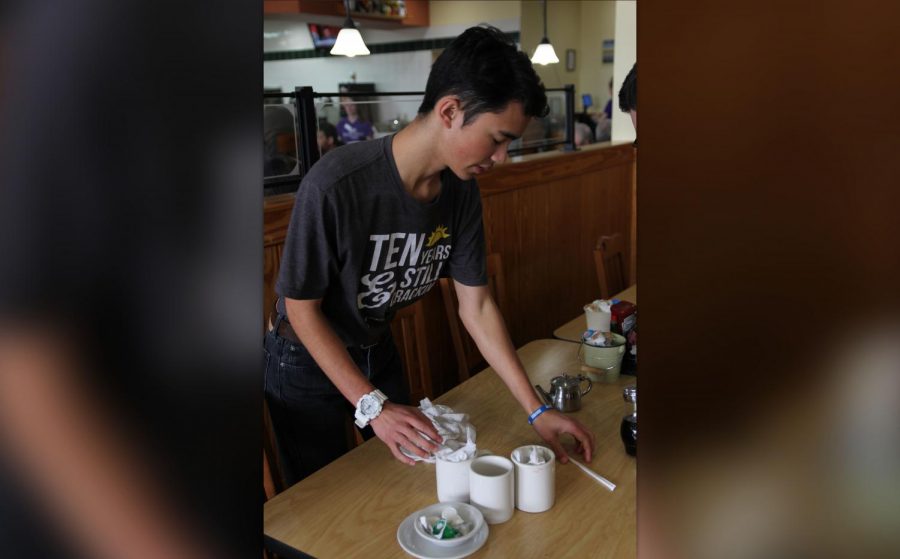Minimum wage, another caravan and a confirmed murder
Oct. 15-Oct. 21
Students who work 10 hours a week could earn more than $400 extra a year with a minimum wage raise in Missouri.
Local
Know: Voters will have the opportunity to raise the state minimum wage on the Nov. 6 ballot. Proposition B proposes a $.75 increase effective, January 2019.
Inform: The current minimum wage for the state of Missouri sits at $7.85. If passed, Prop B would raise the wage to $8.60, effective January 2019. Additionally, the initiative would continue to increase the minimum wage by $.85 an hour each year until 2023 when the minimum wage would ultimately be $12. Minimum wage in Missouri has not been raised by more than 15 cents since 2009 when the wage went from $5.15 to $6.50.
Care: Full-time minimum wage-earners in Missouri make as little as $13,000 a year. The cost of living in Missouri is 10.5 percent lower than the national average. A single person’s monthly cost of living in St. Louis is $875.53 adding up to $10,500 a year. Workers in St. Louis City had a raised minimum wage of $10, but the wage reverted back to $7.70 after the former Governor Eric Greitens blocked the increase. The increase is expected to draw in an additional $214 million in tax revenue. More than 30 percent of high schoolers currently hold jobs. If the average students works for 10 hours a week and earns minimum wage, they would be earning close to $400 a year more than if the minimum wage stayed at $7.85. While this may not seem like a lot, it is more than 100 extra gallons of gas or 40 additional fast food meals a year.
National
Know: A caravan of immigrants from Central America began heading toward the U.S., Oct. 21.
Inform: Press reports have put the number at 5,000 immigrants moving north, but a Mexican official says that the figure is as high as 7,000. The northbound immigrants are fleeing poverty and violence in Guatemala, Honduras and Mexico. The caravan began when immigrants seeking asylum in Mexico found the asylum application process too long and chose to head even farther north. President Donald Trump announced his plan to close the border on the immigrants. The migrants have been urged to remain in Mexico and seek asylum by Mexican officials; although the officials did not stop the caravan from heading toward the border.
Care: The U.S. is home to more than 11 million unauthorized immigrants making up over 3.4 percent of the population. In April, a caravan of 150 migrants that had originally been 1,500, reached the U.S. border to seek asylum. Border patrol only allowed a select few of the immigrants to enter the U.S. after the 2,000 mile journey. President Trump has taken to Twitter to denounce the caravan and urge voters to support stronger immigration legislation in the November midterm election, Tuesday, Nov. 6.
International
Know: Saudi Arabia confirmed the murder of Saudi journalist Jamal Khashoggi, Oct. 19.
Inform: Khashoggi, who fled Saudi Arabia in 2017 went missing, Oct. 2. News organizations suspected that a Saudi team murdered Khashoggi after he entered the Saudi consulate in Istanbul and never came out. Turkish officials came forward accusing the Saudis of kidnapping Khashoggi and brutally killing him, but the Saudis quickly denied all allegations. Foreign Minister Adel al-Jubeir eventually admitted that a team of “criminals” murdered the journalist and condemned the action; although the murder was in no way tied to the Saudi government. The minister called the action a “rogue operation” that operated out of the government’s sight.
Care: The murder, which has since become an international conflict, will test the bond between Saudi Arabia and the U.S.. Each year, the U.S. alone imports $18.9 billion from Saudi Arabia and has a $110 billion arms trade deal with the oil-rich country. The two countries’ trade relationship began with the oil trade in 1933. President Donald Trump accused Saudi Arabia of lying about Khashoggi’s death but also defended the ally and Crown Prince Mohammed bin Salman. However, with the recent news of Saudi Arabia confirming the death, the line becomes even more unclear–leaving the U.S. to question Saudi Arabia’s trustworthiness and decide between defending human rights or their long-standing ally. If the U.S. doesn’t condemn such atrocious treatment of a human, the country is doing the same as supporting the atrocities, but at the same time, condemning the actions jeopardizes billions of dollars in trade.
Your donation will support the student journalists of Eureka High School - MO. Your contribution will allow us to purchase equipment and cover our annual website hosting costs.

This is Ethan's seventh semester on the News Production staff. In his free time, he enjoys taking photos, going to concerts and hanging out with his friends....

@weck_EHShub
This is Weckherlin's first year on Eurekana's staff where she serves as a normal staff member. One word to describe her: positive. Conversation...



















